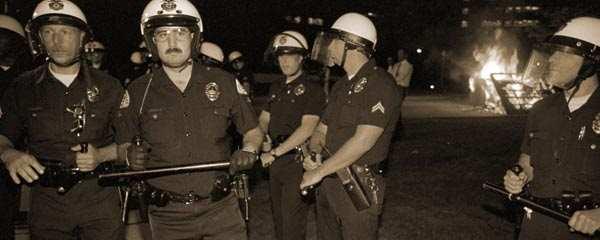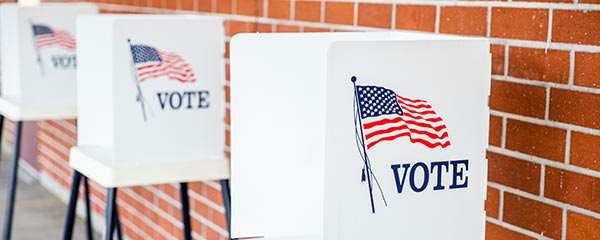On Oct. 1, 1962, James Meredith became the first black student to enroll at the University of Mississippi, overcoming two school rejection letters on account of his race, passage of a Mississippi legislature bill intended to thwart him and violent protests against his admission. The 28-year-old U.S. Air Force veteran finally prevailed because the Supreme Court ruled in his favor and President John F. Kennedy intervened. Kennedy sent more than 30,000 federal police, National Guardsmen and federal marshals to help quell the rioting, confront the Mississippi governor who was leading the charge against Meredith, and protect Meredith as he entered the school.
Earlier that year, ║┌┴¤═° found 32% of Americans saying that the Kennedy administration was "pushing racial integration too fast," 11% saying that it was not pushing fast enough and 35% saying that it was about right. Twenty-two percent did not express an opinion.
About three weeks after the federal government prevailed and Meredith was attending classes -- albeit ostracized by his classmates -- the percentage saying that the pace of integration was too fast rose to 42%, while the percentage with no opinion fell to 14%.
| Too fast | Not fast enough | About right* | No opinion | ||||||||||||||||||||||||||||||||||||||||||||||||||||||||||||||||||||||||||||||||||||||||||||||||
|---|---|---|---|---|---|---|---|---|---|---|---|---|---|---|---|---|---|---|---|---|---|---|---|---|---|---|---|---|---|---|---|---|---|---|---|---|---|---|---|---|---|---|---|---|---|---|---|---|---|---|---|---|---|---|---|---|---|---|---|---|---|---|---|---|---|---|---|---|---|---|---|---|---|---|---|---|---|---|---|---|---|---|---|---|---|---|---|---|---|---|---|---|---|---|---|---|---|---|---|
| % | % | % | % | ||||||||||||||||||||||||||||||||||||||||||||||||||||||||||||||||||||||||||||||||||||||||||||||||
| 1962 Oct. 19-24 | 42 | 12 | 32 | 14 | |||||||||||||||||||||||||||||||||||||||||||||||||||||||||||||||||||||||||||||||||||||||||||||||
| 1962 May 3-8 | 32 | 11 | 35 | 22 | |||||||||||||||||||||||||||||||||||||||||||||||||||||||||||||||||||||||||||||||||||||||||||||||
| *Volunteered response | |||||||||||||||||||||||||||||||||||||||||||||||||||||||||||||||||||||||||||||||||||||||||||||||||||
| ║┌┴¤═° | |||||||||||||||||||||||||||||||||||||||||||||||||||||||||||||||||||||||||||||||||||||||||||||||||||
Kennedy's argument at the time focused less on the moral injustice of segregation, and more on the rule of law, saying:
"Americans are free, in short, to disagree with the law but not to disobey it. For in a government of laws and not of men, no man, however prominent or powerful, and no mob, however unruly or boisterous, is entitled to defy a court of law. If this country should ever reach the point where any man or group of men by force or threat of force could long defy the commands of our court and our Constitution, then no law would stand free from doubt, no judge would be sure of his writ, and no citizen would be safe from his neighbors."

║┌┴¤═° Analytics
Subscribe to our online platform and access nearly a century of primary data.
The next pivotal event that stoked Americans' belief that Kennedy was pushing integration too fast was likely the president's June 11, 1963, speech to the nation in which he made the case for the 1964 Civil Rights Act to end racial segregation. Kennedy told Americans:
"The heart of the question is whether all Americans are to be afforded equal rights and equal opportunities, whether we are going to treat our fellow Americans as we want to be treated. If an American, because his skin is dark, cannot eat lunch in a restaurant open to the public, if he cannot send his children to the best public school available, if he cannot vote for the public officials who will represent him, if, in short, he cannot enjoy the full and free life which all of us want, then who among us would be content to have the color of his skin changed and stand in his place? Who among us would then be content with the counsels of patience and delay?"
Public attitudes didn't change immediately after that speech, but by the following month, the percentage saying Kennedy was pushing racial integration too fast rose to 48% and remained near that level until his assassination in November.

Read more from the ║┌┴¤═° Vault.




